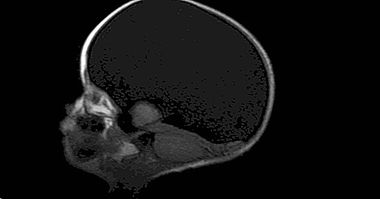The 6 differences between stress and anxiety
Stress and anxiety are phenomena that are sometimes used as synonyms . And it is not surprising because they are very related. Both can be adaptive and can even appear together.
But if we stop to think, there are different types of stress (chronic stress, work stress, acute stress, etc.) and various anxiety disorders (OCD, generalized anxiety disorder, panic attack, etc.).
Related Posts:
- "Types of stress and their triggers"
- "The 7 types of anxiety (causes and symptoms)"
Differences between stress and anxiety
So, What is it that differentiates stress from anxiety? In this article you can find a list of differences between stress and anxiety.
1. The origin
Stress and anxiety are often related and both can be adaptive at times. However, the origin these phenomena can be different .
Anxiety may appear after a warning reaction, and may be associated with fear and worry. For example, before the threat of an animal or the anticipatory idea of something bad is going to happen. On the other hand, stress is a phenomenon that occurs because the person does not possess (or thinks he does not possess) the skills, abilities or time necessary to face a specific situation. That is, there is a mismatch between the specific demand and resources to meet this demand.
Stress can also occur when a person is at work and has to carry out certain functions, but does not receive enough information about their role from the company, or the information received from it is ambiguous. Then there is what is known as role conflict and role ambiguity, which are psychosocial variables that are related to stress in the work environment.
2. Anxiety is a symptom of stress
Much of the confusion that exists between both phenomena and what makes them similar is that they often appear together. In fact, a stressful situation causes anxiety as one of its symptoms, although it can also produce other , for example, depression or headaches.
Prolonged stress, in addition, can cause the appearance of other consequences such as demotivation or depersonalization. Prolonged stress burns the person and causes emotional fatigue.
3. Regarding the objective intensity
Although stress can cause many problems for the person who is in a stressful situation, it is possible to reduce stress by eliminating the stimulus that this situation causes . For example, when someone feels stressed because they have not managed their time well and their work is accumulated before an exam. Once the test passes, the person can return to normal.
Although an individual with an anxiety disorder may feel a great deal of anxiety before a stimulus, for example, in the case of a phobia, although the stimulus disappears, the person will continue to suffer from the phobia even just imagining the presence of the stimulus. It could be said that stress is, at least in most cases, a real cause (although it is mediated by the expectations of the person). But nevertheless, Pathological anxiety is an irrational interpretation of a danger or an exaggerated worry . The intensity of the anxiety is not in agreement with the objective situation.
4. The temporary moment
By associating stress with a triggering stimulus, it usually manifests in the present moment . For example, when a person has to turn in a task at the university and does not have time to do it. However, the stress can be prolonged, for example, when someone does not make ends meet and has to pay the mortgage on their house (stressor is still there month after month, and the mortgage gets bigger and bigger). stress becomes chronic If the person is lucky enough to pay the mortgage, he will stop feeling stressed and will feel relieved.
But anxiety may appear again and again, due to concerns of other temporary moments . For example, by anticipating consequences that may not have occurred (as in generalized anxiety disorder). Anxiety is a feeling of apprehension or fear and the source of this concern is not always known or recognized, which can increase the anguish that a person feels.
5. The relationship of stress with stressors
As you see, possibly what most characterizes stress is the presence of stressors , and that is that there are many causes of stress. These stressors can be personal (for example, because of the beliefs that an individual has or because of their level of studies and training), although they can also be organizational (by the leadership styles of the superiors or the communication of the company) or social ( because of the economic crisis or political destabilization).Stress has to do with the demands of the environment.
6. Anxiety and emotional impact
Therefore, situations that cause stress are the result of external factors. But in the case of anxiety, it has more to do with psychological factors and emotions . That is, it usually has its origin in interpretations that may or may not be real. A person suffers stress in life situations of the most varied, perceived as excessive or in which a person does not have the necessary resources to deal with them effectively.
In the case of anxiety, this is a reaction, emotional, physical and cognitive alert to a threat is real or not, but it is also an emotional response to the stress that continues after a stressor has disappeared and responds and It grows through thoughts.
For example, when an exam is approaching in which someone plays a lot. On the one hand there is the stress of the situation and the overload of work, but on the other hand there is the worry of playing the whole course in an exam. This anxiety can make the person have difficulty sleeping during that time, thinking whether or not they will pass the exam. If you do not pass the test, anxiety will surely take over the person, but the workload will have decreased and therefore the individual will not be stressed.



















